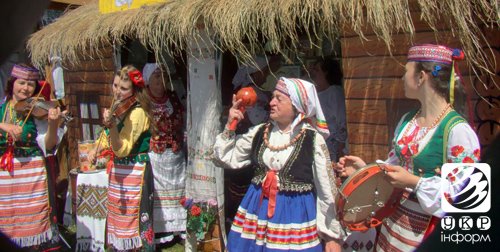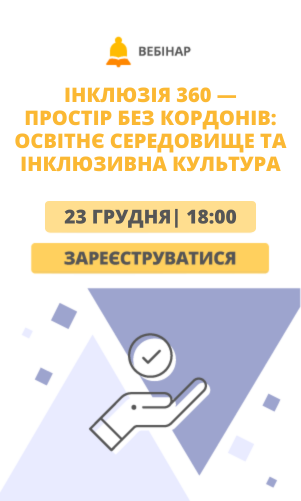Урок "Англійська мова та національності"
Урок про значення англійської мови для інтернаціонального спілкування. Мета:
• ознайомити з назвами країн та національностей, рисами характеру, притаманних народам світу;
• активізувати вживання лексики із теми, розширювати словниковий запас;
• розвивати навички комунікативної компетенції студентів у монологічному мовленні, аудіюванні та читанні;
• ввести новий граматичний матеріал «Суб'єктний інфінітивний комплекс», закріпити у тренувальних вправах;
• виховувати толерантне ставлення до людей різних національностей, гордість за власну культуру та усвідомлення важливості збереження та збагачення мов.
МІНІСТЕРСТВО ОСВІТИ І НАУКИ УКРАЇНИ
СМІЛЯНСЬКИЙ ТЕХНІКУМ ХАРЧОВИХ ТЕХНОЛОГІЙ НУХТ
“ ЗАТВЕРДЖУЮ“
Заст.директора з НР
_______ Глухова К. С.
“__ “_______ 2015 р.
ВІДКРИТЕ ЗАНЯТТЯ
Назва дисципліни : «Іноземна мова за професійним спрямуванням»
для студентів IІ курсу
Тема : «Країни та національності»
«Суб’єктний інфінітивний комплекс»
Підготувала викладач: Усенко Тамара Йосипівна
Кваліфікаційна категорія: викладач вищої категорії
|
«РОЗГЛЯНУТО» на засіданні циклової комісії філологічно-гуманітарних дисциплін Протокол № ____ від “__ “_______ 2015 р.
Голова комісії _________ Бардадим А.Ю.
|
|
“ СХВАЛЕНО“ на засіданні методичної ради СТХТ НУХТ № ___ (реєстр.номер) Протокол № ______ від “__ “_______ 2015 р. ________ Кикоть О.В. |
м. Сміла
Тема: «Країни та національності»
«Суб’єктний інфінітивний комплекс»
Мета:
- ознайомити з назвами країн та національностей, рисами характеру, притаманних народам світу;
- активізувати вживання лексики із теми, розширювати словниковий запас;
- розвивати навички комунікативної компетенції студентів у монологічному мовленні, аудіюванні та читанні;
- введення нового граматичного матеріалу «Суб’єктний інфінітивний комплекс», закріплення у тренувальних вправах;
- виховувати толерантне ставлення до людей різних національностей, гордість за власну культуру та усвідомлення важливості збереження та збагачення мов.
Вид навчального заняття: практичне заняття
Форма заняття: комбіноване заняття
Форми роботи: групова, індивідуальна, парна
Методи: комунікативний та груповий, пояснювально-ілюстративний, проблемно-пошуковий, загально-дидактичні (словесний, наочний, практичний)
Принципи: послідовності, доступності, науковості, демократичності
Інтерактивні технології: «Мозковий штурм», «Мікрофон»; комунікативно спрямована рольова гра «Join the Club».
Обладнання: Комп’ютер, мультимедійний проектор, фото, картини, презентації в електронному вигляді, фільми “English is Great”, “Languages Matter!”, “The Tower of Babel”
Роздатковий матеріал: картки із завданнями для роботи в групах; для роботи в парах , для індивідуальної роботи.
Вимоги до знань студентів: студенти повинні прибути на заняття, підготувавши усні повідомлення із теми « English», діалоги, прочитавши та переклавши текст, опрацювавши лексичний матеріал.
Література:
1.Верба Л.Г., Верба Г.В. Граматика сучасної англійської мови – К: Логос, 2004 – 341 с.
2.Tim Falla, Paul Davies Solutions, Intermediate Student’s Book/Workbook. – Oxford University Press. - 2008. – 140p.
3.Полупан А.П., Полупан В.Л., Махова В.В. English-speaking countries. A cultural reader. – Х.: Країна мрій, 2002, - 208с.
4.Полупан А.П., Полупан В.Л., Махова В.В. English-speaking countries. Work book. – Х.: Видавнича група “Академія”, 2000. – 236с.
5.Зубков М., Мюллер В. Сучасний англо-український та україно-англійський словник. – Х.: ВД « Школа», 2005. – 768 с.
6. Матеріали з сайту Британської Ради: http://learnenglish.britishcouncil.org/
7. Матеріали з Вікіпедії
Хід заняття
І. Організаційний момент
1) Привітання
Good morning, dear friends! I’m glad to see you. This lesson is about the English language and other languages (including endangered languages) that you may know. It develops speaking skills and the use of language on the topic and your own experiences and opinions as the basis of all discussions and written work.
2) The report of the pupil on duty.
What is the date?
Who is absent?
What is your homework?
3) Оголошення теми та мети уроку.
The topic of our lesson today is “Countries and Nationalities”.
By the end of the lesson you will be able
- to listen and understand details of the text, films, to answer the questions and discuss them;
- to read the text, retell it, make up dialogues and do exercises according to the text;
- to describe the features of character of different nationalities;
- to discuss the problem of endangered languages;
- to use Subjunctive Infinitive Complex.
ІІ. Основна частина заняття
1) Match the words and phrases in the table to their definitions.
|
1. predominant |
2. native language |
3. interpreting |
4. collection |
|
5. manuscripts |
6. influence |
7.communicate |
8. modern |
a) up-to-date
b) translating
c) more important or larger
d) affect
e) the first language you learn
f) set
g) handwritten documents
h) socialize, to speak with other people
2) “Brainstorm”
Word Cloud
Why do people want to learn English?
- to communicate with foreigners;
- to use the Internet;
- to use for business;
- to use for your speciality;
3) Watching the film “English is Great”
Сomprehension Task 1
What topics do Richard and Roger talk about? Choose all the right answers
- The number of items in the British Library
- How English has evolved over time
- The impact of Shakespeare on English
- The impact of the Industrial Revolution on English
- The impact of the Internet on English
- A famous printer
- The first dictionary of English
- The first text message ever sent
Сomprehension Task 2
Fill in the missing information with words or numbers from the video.
- The British Library has existed for over_____years.
- Every year, they have to add____ kilometers of shelves to house new items.
- The library has____items from all over the world.
- A thousand years ago, English was similar to_____.
Task 3
We are all familiar with how people use mobile phones now to text each other – SMS. And they shorten words and they use letters to get their message across. The nineteenth century poet wrote “I wrote 2 you b4”, instead of “I wrote to you before”. How good is your SMS English?
Translate these messages into “correct” English, one word in each space.
- Luv u. C u l8r.
- Ru OK? Pls call me asap.
- My hols wr gr8 - & yrs?
- Wld u like dnr 2nite?
- I need 2 c u b4 I leave.
4) Checking up the homework
Read and translate the text “Why I Study English”
Answer the questions
- What is Petro's point of view about the role of English in his plans for future?
- Why English is necessary for an expert in any field?
- Why a foreign language is important for tourists?
- What is the role of English in European co-operation?
- Can Ukrainians take part in international projects without mastering a foreign language?
- Why is it better to spend money on your language education rather than pay them to an interpreter?
- What are Petro's plans as for improving his English in future?
5). Match the number of the picture to the phrase. Look at the picture and say in what fields a foreign language is necessary to a person.
a) to find a job abroad
b) to go on holiday abroad
c) to earn a lot of money
d) to become a politician
e) to travel everywhere in the world
f) to watch films in the original language
g) to go abroad on an exchange programme
h) to read books in the original language
i)to get access to the Internet
j)to make friends with people from other countries
k) to communicate with people from other countries
l) to work as a secretary
m) to make presentations at international conferences
6). Tell why you study English and in what way it will be useful for you in future. Use the following expressions:
In my opinion…
It is very important…
As to my parents’ content…
As you know…
Speaking about the democratic society…
I should mention…
7). Dialogues about the language
8).Watching a cartoon about Babylon Tower.
9). Listen to four teenagers ‘opinions about the people from their own country. What are their nationalities. Choose from the box.
|
American Argentinean Australian Belgian Brazilian Chinese French German Greek Hungarian Japanese Polish Russian Spanish Swiss |
Rosanna: I love Brazilians – but maybe that’s because I’m from Brazil! The best thing about them is they laugh a lot and they smile a lot. If you walk down the street, you see lots of smiles! Another thing is that they are always willing to share what they have got with you; even if they haven’t got very much themselves… They are not all mean.
Ethan: I’m from New York in the USA. It’s an enormous country, and , of course, people are different in different parts of the States. But I think there are some characteristics that are typical and that are shared by Americans across the country. Let me give you an example. In general, Americans work hard – they start work early, finish late, and they haven’t long holidays. In my opinion, they are proud of their country, and very proud to be American, whatever their ethnic background.
Junko: I’m not typically Japanese – I’m probably more like an Australian, because I’ve lived here in Australia for years now. Japanese people have good manners and show respect to other people, especially people they don’t know. In fact sometimes they can be rather formal. Personally, I’m not! Another difference between me and other Japanese is that I’m very open, even with people I don’t know. Japanese people often hide their feelings. They don’t like other people to know what they are thinking or feeling.
Carlos: I’m from Spain – from the south, near Seville. I think Spanish people, in general, are warm-hearted and they like meeting new people and making new friends. The Spanish don’t like to sit in silence – they like talking – they can chat for hour on end. That’s my opinion, anyway.
Сomprehension Task 1
Match two opinions with each person. Write R (Rosanna), E (Ethan), J (Junko), C (Carlos) next to each opinion.
- They are usually polite and formal with strangers.
- They are very patriotic.
- They are very talkative.
- They are hard-working.
- They are really cheerful.
- They don’t like to show their emotions.
- They are very generous.
- They are quite warm and friendly.
10). Work in pairs. How would you describe people from a) your own country; b) from another country you know? Choose the adjectives from the box or your own ideas and make notes.
|
Friendly/ unfriendly optimistic/pessimistic serious/funny talkative/quiet hard-working/lazy rude/polite ambitious/unambitious relaxed/tense mean/generous reliable/unreliable arrogant/modest |
Challenge!
What are the main characteristics of the following nations?
The Japanese _______
The Germans________
The Americans_______
The Ukrainians________
The British________
11).Watching the film “Languages Matter!”
A word game “Bingo”
12). Discussing the problem of endangered languages
- Do you know any endangered languages?
- Are there any endangered languages near where you live?
In Ukraine there are also endangered languages in Western Ukraine. The Boikos and Lemkys are native speakers of these dialects. The Boikos are the descendants of Serbians or White Serbs. The Lemkys are the Polish ethnic group.


- Is it important to keep all the world’s languages alive? Why\Why not?
If the languages do not exist the cultures will disappear.
- What can be done to keep endangered languages alive?
In Ukraine these people are fighting for their identity. They put the question about the textbooks in their dialects, they organize festivals, they publish their newspaper. And we must support their striving for saving their culture.
13).Discuss this statement with your partner:
Half the world’s 6000 plus languages will die out by the end of the century and there’s no valuable reason to do anything about it.
The mankind must do everything to save the diversity of nationalities and their cultures.
14). Grammar
The Subjective Infinitive Complex
a) a table and the rule;
b) test on the Subjective Infinitive Complex. (в зошитах, на дошці)
TEST
III. ЗАКЛЮЧНА ЧАСТИНА
- Підведення підсумків
- Повідомлення оцінок
- Пояснення домашнього завдання:
Прочитати та перекласти текст “British Teenagers Abroad” та виконати післятекстові вправи
- Завершення заняття
Додаток 1
Діалог 1
1. Hi !
2. Hello. How are you?
1. I am OK. And you?
2. I am fine. Where are you going?
1. I am going to the English club.
2. What for? I think it is the waste of time.
1. I don’t think so. English is necessary. And we have studies and training in spoken English.
2. For me it is no problem. I will use Google translator in a computer.
1. Of course, you may. But how to communicate with people, how to fulfill the task on the computer in the Internet? You know, all the information is in English.
2. Are you sure, you will work for the foreign company?
1. It does not matter, because a modern IT worker, a programmer, as we are going to be, should know English perfectly. I suggest you to join our club.
2. Really? May I join it now?
1. It goes without saying. Let’s go together. The teacher will be glad to see you.
2. Agreed!
Додаток 2
Діалог 2
During the break
T: Be tolerant to the newcomers
1 Hi, guys!
2,3: Hello!
1: Yevhen, will you attend our English group this year?
3: Yes, I have studied Deuch oh ,sorry, German before.
2: It is good. English is necessary in our time. It is used everywhere, wherever you go.
1: To communicate with people of different countries.
2: To achieve real success in life is impossible without speaking a foreign language.
1; If you are an expert or a scientist you need a foreign language to receive a new information on your speciality.
2: If you are a business person you need a foreign language to have a business with foreign partners.
1: Many people like to travel. For this a foreign language is necessary too. If you want to get education abroad you must know a foreign language too.
2: You can read books in original. And if you are fond of music, you can understand the words of the songs.
1: If you are an athlete you can communicate using English during international competitions. Have you heard Klichko? He speaks English and German.
2: Ukraine is going to become a member of the European Union. And it is very important for everybody to know at least one foreign language.
3: Yes, I think English is the most popular. And I am going to become a programmer. All the information is in English.
1: A good choice. English is one of the most popular foreign languages. It is the most spoken language in international communication. I am glad that I know English a little.
2: our group and our teacher will help you to learn English better.
1: Yes, we are going to be good programmers!
3: Boys, thank you for support.
Додаток 3
BINGO
|
threat
|
languages |
die |
loss |
cultures |
|
feelings |
changed |
disappearing |
bridge |
culture |
|
languages |
exist |
|
cultures |
disappear |
|
look |
Web technology |
Internet |
cyber |
space |
|
People |
key |
communication |
opportunities |
understanding |
1


про публікацію авторської розробки
Додати розробку
